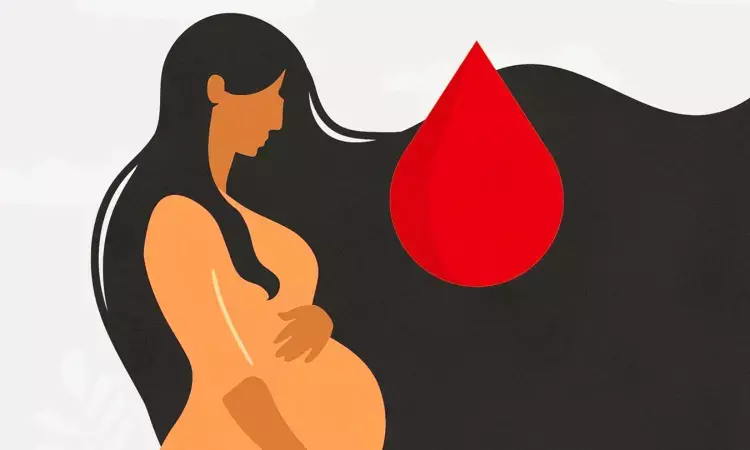- Home
- Medical news & Guidelines
- Anesthesiology
- Cardiology and CTVS
- Critical Care
- Dentistry
- Dermatology
- Diabetes and Endocrinology
- ENT
- Gastroenterology
- Medicine
- Nephrology
- Neurology
- Obstretics-Gynaecology
- Oncology
- Ophthalmology
- Orthopaedics
- Pediatrics-Neonatology
- Psychiatry
- Pulmonology
- Radiology
- Surgery
- Urology
- Laboratory Medicine
- Diet
- Nursing
- Paramedical
- Physiotherapy
- Health news
- Fact Check
- Bone Health Fact Check
- Brain Health Fact Check
- Cancer Related Fact Check
- Child Care Fact Check
- Dental and oral health fact check
- Diabetes and metabolic health fact check
- Diet and Nutrition Fact Check
- Eye and ENT Care Fact Check
- Fitness fact check
- Gut health fact check
- Heart health fact check
- Kidney health fact check
- Medical education fact check
- Men's health fact check
- Respiratory fact check
- Skin and hair care fact check
- Vaccine and Immunization fact check
- Women's health fact check
- AYUSH
- State News
- Andaman and Nicobar Islands
- Andhra Pradesh
- Arunachal Pradesh
- Assam
- Bihar
- Chandigarh
- Chattisgarh
- Dadra and Nagar Haveli
- Daman and Diu
- Delhi
- Goa
- Gujarat
- Haryana
- Himachal Pradesh
- Jammu & Kashmir
- Jharkhand
- Karnataka
- Kerala
- Ladakh
- Lakshadweep
- Madhya Pradesh
- Maharashtra
- Manipur
- Meghalaya
- Mizoram
- Nagaland
- Odisha
- Puducherry
- Punjab
- Rajasthan
- Sikkim
- Tamil Nadu
- Telangana
- Tripura
- Uttar Pradesh
- Uttrakhand
- West Bengal
- Medical Education
- Industry
Higher Postpartum Hemoglobin Levels Linked to Lower Depression Risk: Study

Researchers found that women with higher levels of haemoglobin shortly after childbirth are less likely to develop symptoms of postpartum depression (PPD) two months later. With each increase in postpartum haemoglobin by 1 g/dL, the risk of developing depressive symptoms decreased by 9%. The study was published in An International Journal of Obstetrics and Gynecology by Lola L. and colleagues.
This research was an ancillary study of the TRAAP trial (a multicentre French trial), and it determined the effect of early postpartum haemoglobinaemia on the risk of postpartum depression symptoms at two months. The population comprised women who experienced a singleton vaginal delivery beyond 35 weeks of gestation. Excluded from the population were women with pre-existing psychiatric disorders and those that were not responsive to the Edinburgh Postnatal Depression Scale (EPDS). Haemoglobin levels were measured routinely soon after delivery, and EPDS scores were measured at the two-month point in order to assess depressive symptoms.
The exposure measure was maternal haemoglobin at the time of delivery. Postpartum depression was ascertained with the EPDS, with a score ≥11 regarded as indicative of depressive symptoms. These symptoms were also classified as moderate (EPDS 11–12) and severe (EPDS ≥13). Statistical analysis involved multivariable models that were controlled for factors known to be of relevance, enabling the researchers to measure the association between haemoglobin and risk of depression while adjusting for confounders.
Key Findings
Of 2,672 women in the study:
• 1,115 women (43.6%) developed postpartum anaemia (haemoglobin <11 g/dL).
• 369 women (13.8%) had symptoms of postpartum depression at two months.
• There was a linear correlation between haemoglobin concentrations and PPD symptoms.
• A 1 g/dL higher haemoglobin level was associated with a 9% reduction in the risk of postpartum depression symptoms (adjusted Relative Risk [aRR] = 0.91; 95% Confidence Interval [CI]: 0.82–0.997).
• Postpartum haemoglobin was strongly related to moderate depressive symptoms (aRR = 0.84; 95% CI: 0.72–0.98).
• There was no statistically significant relation with severe depressive symptoms (aRR = 0.95; 95% CI: 0.84–1.07).
This research identifies a definite and quantifiable association between maternal haemoglobin concentration and risk of symptoms of postpartum depression in women giving birth vaginally. These results justify inclusion of standard haemoglobin screening and anaemia treatment in postpartum care guidelines, not merely for enhancing physical recovery but also for minimizing mental health complications among new mothers.
Reference:
Dr Riya Dave has completed dentistry from Gujarat University in 2022. She is a dentist and accomplished medical and scientific writer known for her commitment to bridging the gap between clinical expertise and accessible healthcare information. She has been actively involved in writing blogs related to health and wellness.
Dr Kamal Kant Kohli-MBBS, DTCD- a chest specialist with more than 30 years of practice and a flair for writing clinical articles, Dr Kamal Kant Kohli joined Medical Dialogues as a Chief Editor of Medical News. Besides writing articles, as an editor, he proofreads and verifies all the medical content published on Medical Dialogues including those coming from journals, studies,medical conferences,guidelines etc. Email: drkohli@medicaldialogues.in. Contact no. 011-43720751


